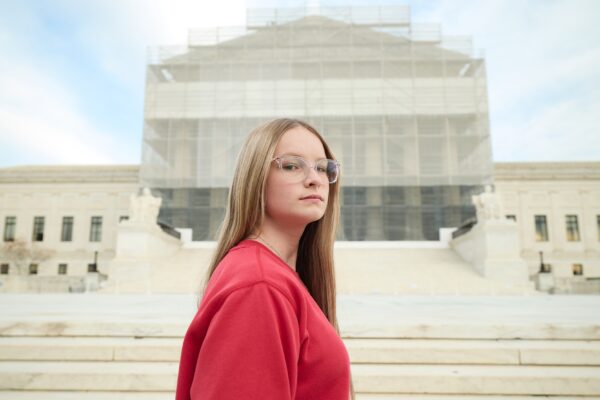Commission Orders Public Hearing in ACLU's Domestic Partner Discrimination Suit Against University of Pittsburgh
FOR IMMEDIATE RELEASE
PITTSBURGH -- The City's Human Relations Commission today issued an order refusing to dismiss a sexual orientation discrimination complaint involving health benefits filed against the University of Pittsburgh, known as "Pitt."
The American Civil Liberties Union's Lesbian and Gay Rights Project and the ACLU's Pittsburgh Chapter, who are representing Pitt gay and lesbian employees in the lawsuit, said that they hope to bring the case to trial this fall.
University officials had moved to dismiss the lawsuit, arguing among other things that the Commission did not have jurisdiction to remedy discrimination based on sexual orientation. A ruling favoring the university could have jeopardized sexual orientation protections passed in Pittsburgh, Philadelphia, Harrisburg, State College, Lancaster, York, and Oxford, said Vic Walczak, the ACLU's Pittsburgh director and an attorney in the case.
"Pitt can clothe their policy in legalese, but it's still just plain discrimination against gay and lesbian employees," he said. "The ACLU continues to urge Pitt to treat all of its employees fairly and to join the swelling ranks of major American universities that give health benefits to same-sex domestic partners."
Earlier this week, the Commission notified three other Pitt employees -- who raised similar claims of discrimination based on sexual orientation and are now represented by the ACLU -- that the Commission had found "probable cause" to proceed with their cases. The ACLU has asked the Commission to consolidate the four cases and to declare the matter a class action.
Christine Biancheria, one of the ACLU volunteer lawyers in the case, welcomed today's ruling.
"The University has sought at every turn to derail this case or delay a full, fair and public hearing on the merits," she said. "The gay, lesbian and bisexual staff and faculty who suffer under Pitt's unequal compensation scheme deserve their day in court, and that is the essence of the Commission's ruling."
The dispute began three years ago when instructor Deborah Henson and the American Civil Liberties Union filed a complaint with the city's Human Relations Commission accusing the school of violating a city ordinance banning discrimination against gays and lesbians.
In denying health benefits to her partner, Henson alleged, the University violated the Pittsburgh Human Relations Act, which prohibits discrimination in employment, including discrimination in compensation on the basis of sexual orientation.
The case is Henson v. University of Pittsburgh, No. E-96-003.
Henson and the other Pitt employees are represented by volunteer attorneys Christine Biancheria of Biancheria, Ericksen, Maliver & Angell, James Lieber of Lieber & Hammer, Pittsburgh ACLU Director Vic Walczak, and National ACLU Lesbian and Gay Rights Project staff attorney Leslie Cooper.

